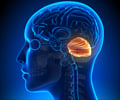
‘New evidence links specific gut bacteria to neurodegenerative conditions such as Alzheimer's, Parkinson's, and ALS. Hereditary transmission of the toxic protein aggregates found in these neurodegenerative conditions was also seen. This opens possible connections between gut bacteria and protein misfolding.’
Tweet it Now
Most of the neurodegenerative diseases result due to misfolded protein aggregates that interfere with cell functioning and lead to disorders. The team thereby explored the pathology of protein aggregation via the digestive tract of a tiny, translucent worm called Caenorhabditis elegans by introducing certain bacteria into the worms. Gut Bacteria and Neurodegenerative Diseases
As the toxic aggregates are capable of glowing under the microscope, colonization of certain bacteria species but not control bacteria, lit up not only the intestinal tissues, where the bacteria are but all over the worms' bodies – in their muscles, nerves and even reproductive organs.
It was also noted that the offspring of affected worms also showed increased protein aggregation, despite the fact that these offspring never encountered the bacteria originally associated with the condition. This suggests that bacteria are capable of generating hereditary signals to offsprings.
The worms colonized by the "bad" bacteria also lost mobility, a common symptom of neurodegenerative diseases. The study findings thereby open possible connections between gut bacteria and protein misfolding.
Advertisement
The team is also exploring the possible connections between antibiotic-resistant bacteria and protein misfolding.
Advertisement













